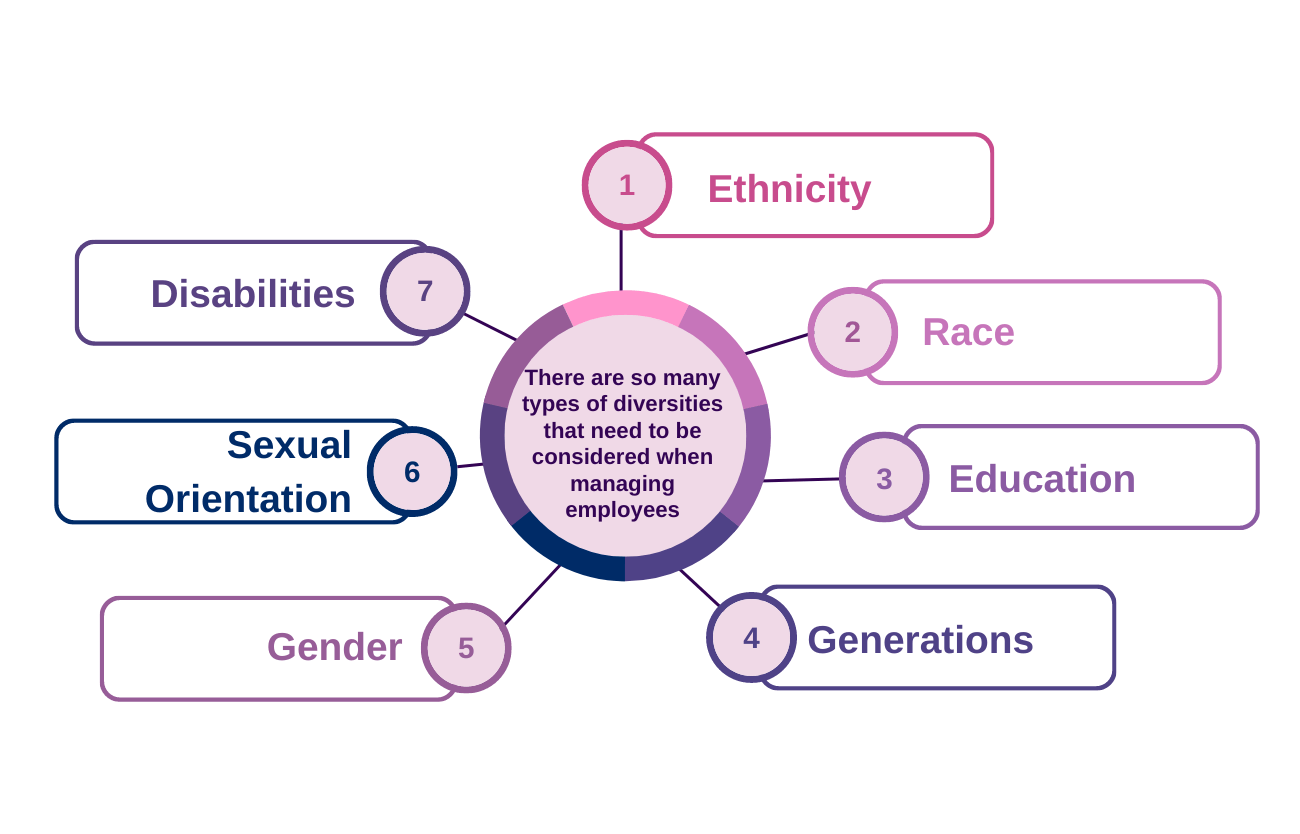In this era of globalisation, borders are becoming blurred, and people from different countries and regions interact without reservation. The internet has facilitated us to reach out to anyone on the globe at any time without any restrictions. The globalisation of business has led to companies having people from different ethnicities working for them. Companies are increasingly looking to hire people from any country if they can meet the skill requirements. It is here that cross-culture management becomes very important.
The Executive Post Graduate Programme In HRM deals extensively with managing people from different cultures and nations. You can learn more about this course on our website.
What Is Cross-Culture Management?
As companies increasingly employ people from different countries, it has become common to see culturally different employees working together in the same workplace. When a firm employs such culturally different people, they must acknowledge that these people have different traditions, customs, languages and mannerisms. The reasons for having multicultural staff can be many. Sometimes people across the globe are managed from one head office. In other cases, such culturally different people may work in the same place. Cross-culture management has become necessary in many firms nowadays.
Managers must understand that they must handle these people differently. They must be sensitive to their cultural differences and communicate with them accordingly. Language barriers can be severe in some cases, so they must ensure that the other person correctly understands what they say. As traditions differ from region to region, the company must accept them and treat people accordingly. Even some gestures may be understood differently in different cultures. Cross-culture management is essential in such environments if work must happen effectively.
What Is Cultural Diversity?
Before we learn about cross-culture management, we must understand what comprises diversity. It is not just people from different countries or regions. There are so many types of diversities that need to be considered when managing employees.
Ethnicity – This is the first kind of diversity that comes to mind when we talk about globalisation. People from different countries work together in the same company. There will be cultural and language barriers.
Race – This is another form of diversity that comes from having people with different skin colours. There has been discrimination on this basis in many places.
Education – The level of education can be different for different employees. Managers must deal with all these people and handle them in different ways.
Generations – Even dealing with employees from different generations takes work. Each generation comes with different expectations from the workplace.
Gender – Gender discrimination still exists in many places, especially regarding salaries. We are talking about not just two genders in the present times. Managers must deal with this diversity effectively.
Sexual Orientation – As society becomes more open to people with different sexual orientations, companies must also treat them equally. Managers must be sensitive to their needs and expectations.
Disabilities – People with disabilities will need special treatment and attention. Companies must ensure a good workplace for these people also.
With such a wide variety of people with different backgrounds, the importance of cross-culture management cannot be stressed enough.
Importance Of Cross Culture Management
Why do companies hire people from different backgrounds if there are so many issues in handling people from diverse cultures? When we know that, we will understand why cross-culture management is important.
- Develop And Maximise Skill Sets
Having people from different backgrounds helps improve the expertise of the team. Each of these groups of people possesses different skills. When they are put together, it offers them an opportunity to learn from each other. When you have multicultural employee makeup, it is possible to have expertise in more skills from different employees. Companies will benefit greatly from such combinations of skills.
Also Read: What Is The Meaning Of Strategic Direction In HRM ?
- Hire Better People
Companies are constantly looking to hire the best hands from the market. Effective cross-culture management helps organisations recruit ideal people for present and future needs. Most candidates today prefer to work in a multicultural environment as they know that there is an opportunity to learn from others and learn about how businesses work in other countries.
- Helps Retain Good Employees
Employees want the assurance that every one of them will be respected and that their voices will be heard by their employers. It makes them more loyal to the company as they are sure of career growth. Staff members like to see the management respect and regard people from different backgrounds in the same way and provide equal opportunities to all.
- Improves Innovation And Creativity
Experts have proved that a diverse workplace comes up with more innovative ideas. It is because each person has a different approach to problems due to their background. This is why diversity fosters better creativity and innovation. Cross-culture management helps companies have better creativity. It will help in providing better solutions for various problems.
- Increases Employee Engagement
Everyone needs to be heard. When there is a diverse workforce, they may learn more about each other. Such informal interactions can lead to better relationships with each other. They will also feel more connected to their colleagues and the company. Such engagement is truly beneficial to the company as it leads to motivation and collaboration.
- Better Reputation
Companies don’t sell products only because of what they sell. More customers look at the company’s reputation from whom they buy items. A company that employs the best people irrespective of their background has a better reputation among customers. Having a diverse workforce also helps with dealing with customers from various backgrounds. It is another reason cross-culture management is important for companies.
- Wider Customer Reach
Where there is a diverse workforce, it is possible for the company to reach out to a wider range of customers. They can approach users from different countries and improve their presence in more markets. The employees from those countries know the traditions and customs of that nation and can handle the customers in a better way.
The Executive Post Graduate Programme In HRM teaches its participants the importance of having a diverse workforce and how to manage them.
How To Effectively Manage Cross-Culture Workforce?
There are many challenges in managing a diverse workforce. But companies have used various methods like training, language classes, knowledge about other cultures, etc., to get over these barriers and ensure smooth working and achievement of goals. Apart from these tools, companies can use the below tips for effective cross-culture management.

- Self-Awareness
This is very important when trying to deal with people from diverse cultures. It is essential for managers to realise that their own practices, traditions and culture are shaped by various aspects. It is not something that is universal, even if one might want to believe so. If you can accept your own cultural bias, then it is easy to understand others and their behaviour. Someone’s behaviour, language or other characteristics come from influencing factors like place, religion, climate and politics. Cross-culture management must start with an understanding that you will appear different to someone from another culture.
- Crossing Language Barriers
Language can be the biggest barrier when there are employees from different cultures. Even if you train them in a common language, their fluency may not be the same. Moreover, people who have that language as their native tongue may use slang that others won’t understand. Even if language training is given, it is not easy for everyone to understand the language when spoken fast. As a manager, it is essential for you to insist everyone speak slowly so that everyone can understand. This is one barrier that cross-culture management must treat very important.
- Equal Opportunities For All
Effective cross-culture management must ensure that everyone gets equal opportunity for employment, promotions and salary hikes. The company must show that it treats everyone equally to get the best out of a diverse workforce. Managers must make sure that even unintentional bias must not creep in when considering employees for promotions or other rewards. When the company enforces this, all employees will treat people from other cultures with the same respect. It is a way of telling them that everyone is equal for management.
Also Read: What are HR Analytics and Metrics?
- Watch For Unconscious Bias
Favouritism doesn’t happen only when there is hiring, promotion or salary hikes. It can happen even in daily work. If there are more employees from one culture in a team, it can be noticed that the opportunities given to others are much lesser. When there is a challenging task that will get the person praise from the management, it will be given to someone from the group that has the majority. One way is to ensure equal participation in all teams. As part of cross-culture management, the company can conduct seminars on unconscious bias.
- Resolve Conflicts Immediately
Conflicts are common in a workplace even when there are only people from the same place working. When there are employees belonging to different nations or cultures, you cannot avoid disputes. The way they communicate with each other will be different, and this can lead to misunderstandings. Small differences can become conflicts soon when combined with work pressure. One of the ways to show effective cross-culture management is to resolve these issues immediately and punish the offender severely, even if the person is from the majority group.
- Provide Cross-Cultural Training
One way to avoid issues when there are people from many backgrounds working together is to provide cross-cultural training to your employees. As part of the cross-culture management process, you must provide training on how to interact with people of other ethnicities. Employees must understand how people from different countries react or express their emotions. This will help in better interaction between the team members and a good understanding of others. Some topics may be unwelcome to people of certain countries while totally acceptable to others.
- Team Building Activities
Team building activities are an ideal way to ensure that all members of the team understand each other well. There are various activities that you can involve the team members in. They can be either virtual, indoor or outdoor. Such activities promote casual conversations about each other’s families and other topics. Subjects that don’t pertain to the office are more likely to promote friendship among employees. You can try activities that are more popular in one of the ethnicities that are a minority. This helps others to know their culture and understand them better.
- Involve Employees In The Process
Cross culture management is not possible only because the management makes an effort. It can be successful only if the employees extend their cooperation. It is best to involve them in the activity. Managers must identify people who are good communicators and entrust them with the job of interacting with people of different cultures. These people can make everyone feel at ease and also find out if they have any problems. The other way to involve staff members is to speak regularly to supervisors and team leaders to know about issues in their teams that need immediate solutions.
There are various methods that can be employed to ensure close collaboration between people from different backgrounds. The ultimate aim must be to ensure good working conditions for all employees of the company, irrespective of their ethnicity, gender or age. You can learn how to manage a diverse workforce in the Executive Post Graduate Programme In HRM. More details about this course are available on our website.
Conclusion
Companies can no longer avoid the presence of people from different countries or regions among their employees. The search for skills takes companies to areas beyond where they are located. But employing people from different regions can result in a lot of problems. But the benefits of employing people from different cultures far outweigh the problems that are bound to occur. Organisations with such mixed staff members must effectively manage them and ensure that the company’s goals are met while also providing employees with a good working environment.
More information:
What is Strategic Human Resource Management? Definition and Examples
Key Objectives of Human Resource Management




























